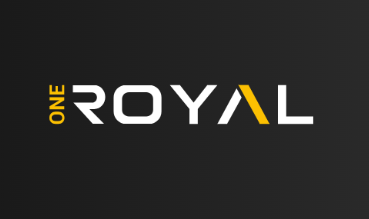You’ll usually need the help of a stockbroker to buy stocks because you can’t just phone a stock exchange and ask to buy stocks directly. When you utilize a stockbroker, whether a person or an internet platform, you may specify the investment you want to purchase or sell as well as how the sale should be conducted.
In this sense, there are two types of brokers to consider: full-service brokers and online/discount brokers. We’ll go through how you can utilise these alternatives to trade stocks on your own in the section below. We’ll also discuss a third option: the direct stock purchase plan (DSPP), which allows investors to buy stock directly from certain public firms.
IMPORTANT TAKEAWAYS
- When trading stocks, you’ll almost always need to employ a broker to place your orders on an exchange.
- While more expensive, a full-service broker provides experienced investment analysis, advice, and commentary, as well as comprehensive financial planning.
- For investors who conduct their own research and analysis, a discount broker is a less expensive choice that provides minimal execution services.
- Many online brokers now provide commission-free trading as well as free tools and screeners, making it easier than ever to trade stocks on your own.
Stock Purchase Locations
Stocks are often listed and traded on exchanges, which are legal places where buyers and sellers meet, frequently with the help of a broker or other intermediary. These intermediaries will be exchange members who will utilise their access to purchase and sell shares on your behalf. The New York Stock Exchange (NYSE) and the Nasdaq market are two major exchanges in the United States.
Smaller firms with less liquid shares and small market capitalizations (sometimes known as penny stocks) may trade over-the-counter (OTC) on less regulated platforms such as the OTC Pink Sheets. Because the shares of these businesses are frequently more volatile and riskier, investors who choose to trade on the OTC market should conduct more due diligence.
FACT: Most brokerages now have access to both major exchanges and over-the-counter (OTC) marketplaces.
Purchasing Stocks Through a Full-Service Broker
Some people picture full-service brokers when they think of investing: well-dressed entrepreneurs sitting in an office, conversing with customers. These are the typical stockbrokers who will spend time getting to know you personally and professionally.
They will consider marital status, lifestyle, personality, risk tolerance, age (time horizon), income, assets, obligations, and other considerations.
These full-service brokers can help you establish a long-term financial strategy by learning as much about you as possible.
These brokers can assist you not just with your investing needs, but also with estate planning, tax counselling, retirement planning, budgeting, and any other form of financial advice—hence the phrase “full service.” They are designed for investors who want everything in one bundle and can help you handle all of your financial demands now and in the future.
Full-service brokers charge more fees than bargain brokers, but the advantage of having a professional human financial advisor on your side might be well worth the extra expenditures. Accounts can now be opened with as low as $1,000. The majority of consumers, particularly novices, would fall into this group in terms of the sort of broker they require.
Note: A roboadvisor is an option for those who want to set it and forget it when it comes to investing but don’t have the money or time to engage a full-service broker. These are algorithmic investing systems that you may administer via an app or website for a fraction of the price of a typical financial adviser.
Buying Stocks Online
Online/discount brokers, on the other hand, do not give financial advice and are essentially just order takers. They are far less expensive than full-service brokers because there is usually no need to visit an office and no licensed financial consultants to assist you. The cost is normally depends on the number of transactions, and you can usually start an account through the Internet with very little or no money. Once you have an account with an online broker, you may generally buy and sell stocks instantaneously by logging on to its website and accessing your account.
Remember that because these brokers offer no financial advice, stock tips, or investment assistance of any sort, you are on your own to handle your assets. Typically, the only assistance you will receive is technical support. Online (discount) brokers do provide important investment-related information, research, and resources.
If you believe you are competent enough to take on the duties of managing your own finances, or if you don’t know anything about investing but want to learn, this is the route to follow.
The final truth is that your broker selection should be based on your specific requirements. Full-service brokers are ideal for people who are ready to pay a fee to have someone else manage their finances. Online/discount brokers, on the other hand, are ideal for those with limited start-up funds who want to take on the risks and benefits of investing without the aid of a professional.
Purchasing Stocks Through a Direct Stock Purchase Plan
Companies (typically blue-chip enterprises) will occasionally sponsor a particular sort of programme known as a direct stock purchase scheme (DSPP). 2 DSPPs were created generations ago as a mechanism for corporations to allow smaller investors to purchase ownership directly from the company. Participating in a DSPP requires an investor to deal directly with the firm rather than through a broker, but each company’s mechanism for managing a DSPP is unique.
Companies that participate will make their DSPP available through transfer agents or another third-party administrator. An investor should contact the company’s investor relations department to learn more about how to join in a company’s DSPP.
How to Trade Once You’ve Found a Broker
After you’ve decided on a brokerage platform, you’ll need to open and fund an account before you can start trading. It is now easier than ever to link a bank account and transfer cash online, or to instantly roll over an existing brokerage account to another business. You may also set up recurring deposits into your brokerage account to build your portfolio on a regular basis.
Once you’ve filled your account, all you have to do is go online or phone your broker to place a deal. Stocks are identified by a unique ticker symbol, which is a one- to four-letter mnemonic issued to a certain firm. MSFT, for example, is the ticker symbol for Microsoft Inc., while AAPL is the ticker symbol for Apple Inc.
If you don’t know the ticker symbol for your stock, you may easily check it up online or through your broker.
When you pick a stock ticker to trade, you will be presented with a price quotation, which is a collection of information about the stock’s price and activity. This will provide the most recent price at which the shares were exchanged, as well as a bid and an offer. The bid is the highest price at which a market participant will purchase a share (and thus is the best price at which you can sell to them). The offer, also known as the ask, is the lowest price at which a market participant is ready to sell (and hence the best price at which you may purchase from them). The spread is the difference between the bid and offer prices. A narrower spread usually suggests that the stock market is extremely active and liquid. A broader spread denotes the inverse. You may place your purchase after reviewing the pricing quotation.
Market orders are the most fundamental form of order and will result in quick execution at the current market price. A limit order, on the other hand, allows you to specify the price at which you want to purchase or sell.
If the price never hits that limit, the deal will stay open until it is terminated. Many of these deals are day orders that are valid until the conclusion of the trading day. If you simply want the order to remain live for a short period of time, you may tell your broker that it is immediate or cancel (IOC). Alternatively, if you want the order to be valid for more than a day, you may make it good ’til cancelled (GTC). Other conditions, such as a stop-loss, can be added to an order.
When your transaction is completed (in whole or in part), you will receive a fill, which is a summary of the contents of your order.
What is the minimum age to trade Stock?
To create a brokerage account and trade stocks in the United States, you must be at least 18 years old. 3 A parent can open a custodial account on behalf of a child under the age of 18.
Is it possible to have free stock purchases and sales?
Yes. Several online brokerage platforms (including Robinhood) provide commission-free trading in the majority of equities and exchange-traded funds (ETFs). It’s worth noting that these brokers still profit from your trades, but they do so by selling order flow to financial institutions and lending your shares to short-sellers.
What Is the Most Convenient Way to Buy Stock?
The simplest approach to execute a transaction is to create and fund an online account and issue a market order. While this is the quickest option to purchase stocks, it is not necessarily the best. Before determining what sort of order to place and with whom, conduct your own research.
Is it necessary to use a broker to purchase stocks?
Some publicly listed corporations provide a direct stock purchase plan (DSPP), which allows you to acquire shares directly from the company. The transaction is managed by the company’s transfer agent rather than a broker.
In conclusion
By creating a brokerage account with one of the many brokerage firms, you can purchase and sell stock on your own. After you’ve opened your account, link it to your bank checking account to make deposits, which will then be accessible for investment.
Do not, however, equate the convenience of creating an account with the ease of making excellent investing selections. Beginners are typically advised to consult with a certified financial counsellor. New investors may benefit from reading Benjamin Graham’s seminal book The Intelligent Investor. Smart investing may be quite rewarding, so take it slowly, do your homework, and look for a broker that matches your interests and ambitions.

























